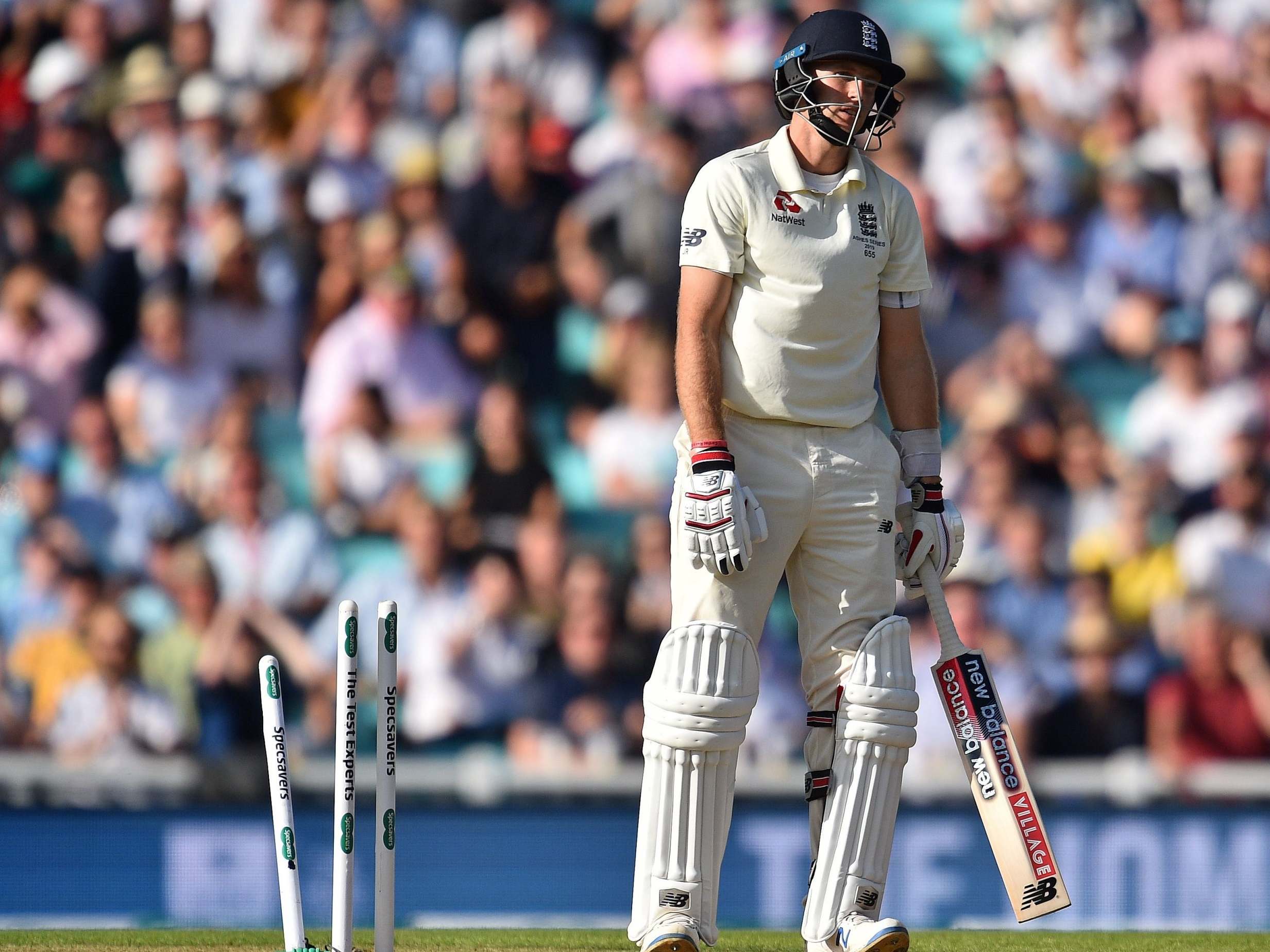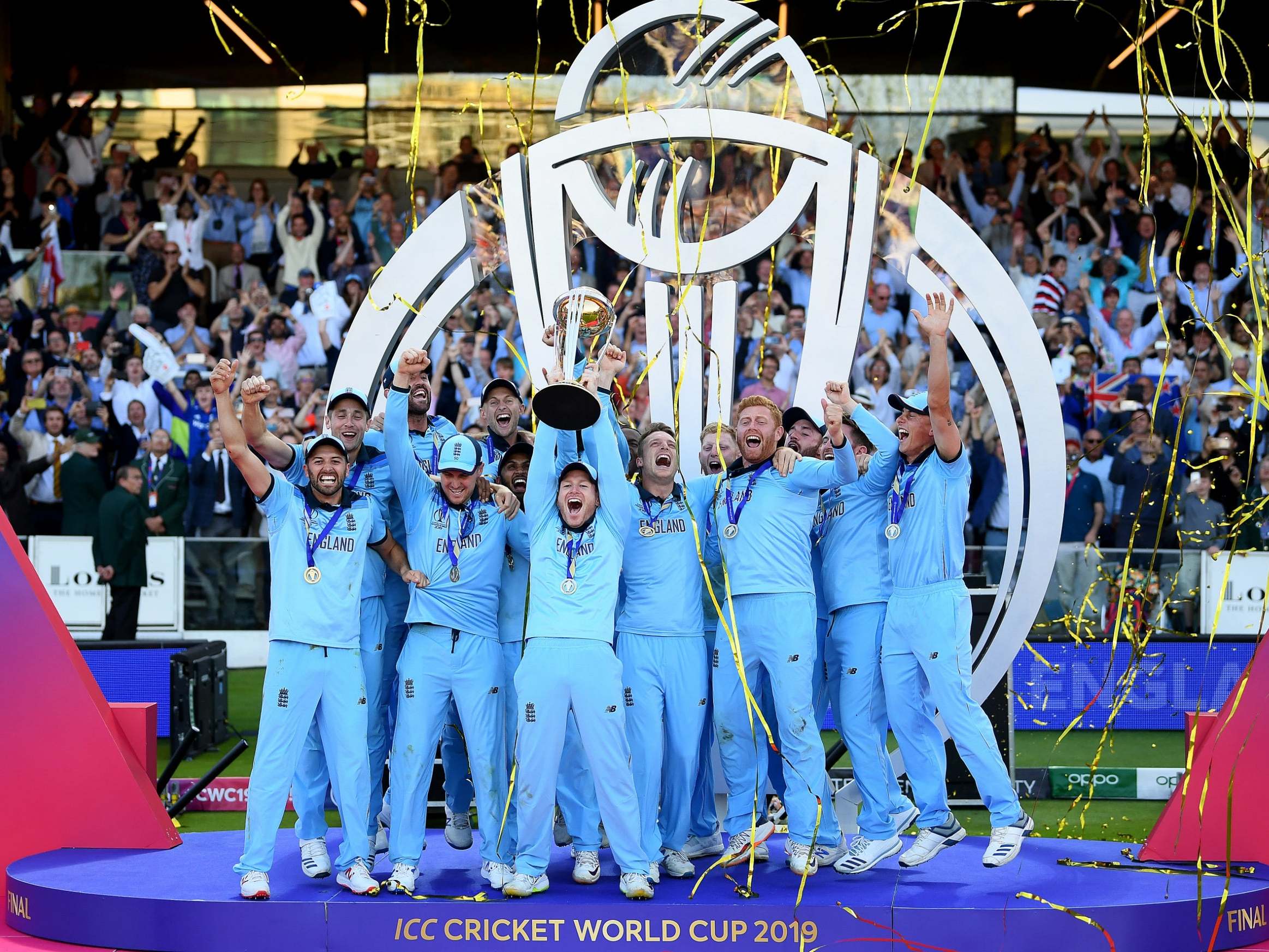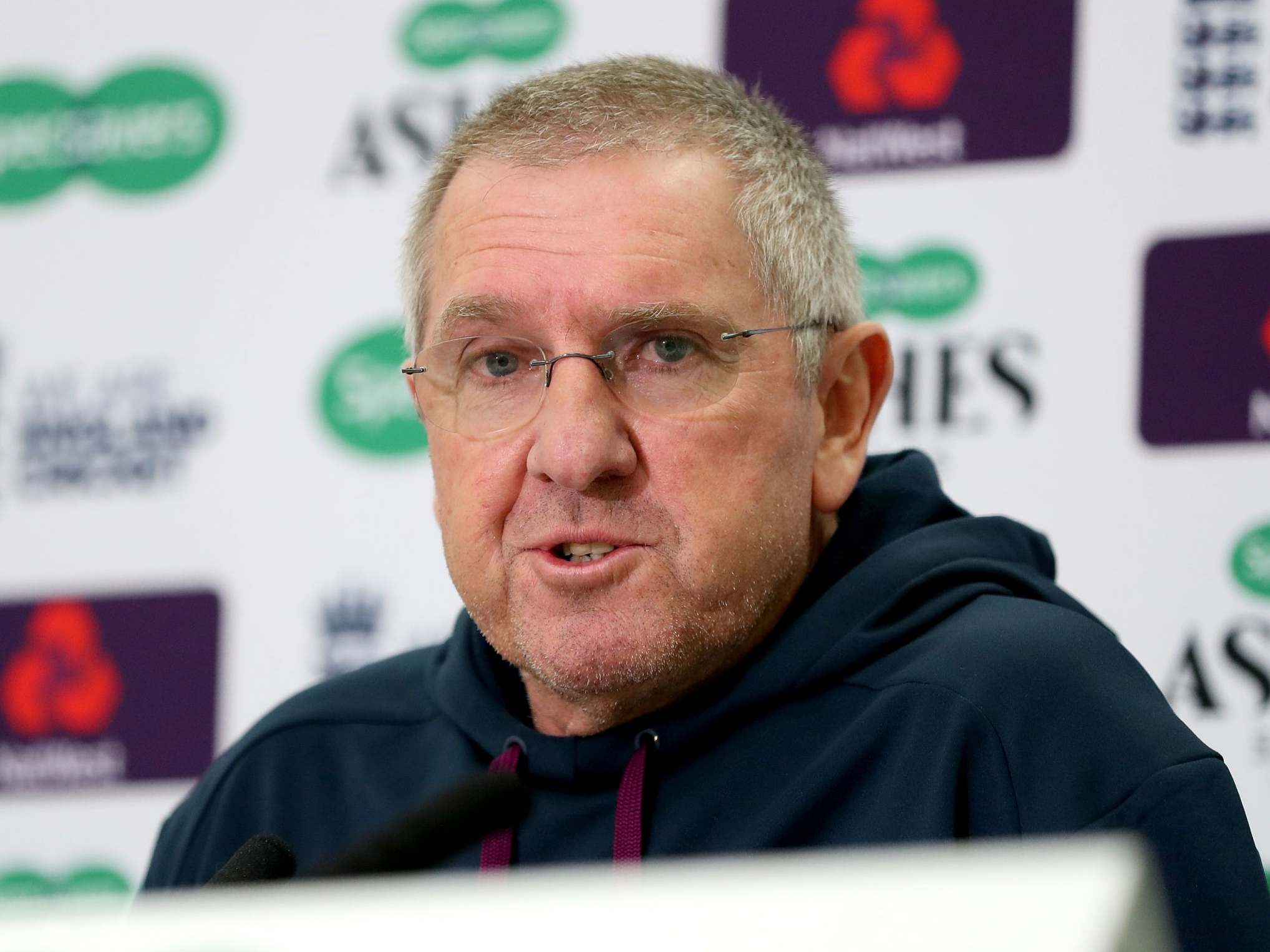What next with English cricket at a crossroads? Questions to be answered ahead of the next cycle
Team director Ashley Giles announced the latest round of central contracts on Friday with some notable omissions but there will be plenty more changes to come as England plot their next steps

Your support helps us to tell the story
From reproductive rights to climate change to Big Tech, The Independent is on the ground when the story is developing. Whether it's investigating the financials of Elon Musk's pro-Trump PAC or producing our latest documentary, 'The A Word', which shines a light on the American women fighting for reproductive rights, we know how important it is to parse out the facts from the messaging.
At such a critical moment in US history, we need reporters on the ground. Your donation allows us to keep sending journalists to speak to both sides of the story.
The Independent is trusted by Americans across the entire political spectrum. And unlike many other quality news outlets, we choose not to lock Americans out of our reporting and analysis with paywalls. We believe quality journalism should be available to everyone, paid for by those who can afford it.
Your support makes all the difference.So, what now? After the longest, wildest and most draining summer in recent memory, English cricket stands at a crossroads. Success in the 50-over World Cup and a 2-2 draw in the Ashes constitute a partial vindication of the ECB’s four-year plan. Now, the start of a new cycle demands new choices.
The axe has already started swinging. On Friday, team director Ashley Giles announced the latest round of central contracts, covering the next 12 months. Liam Plunkett has missed out, probably signalling the end of his international career at the age of 34. Moeen Ali has requested an extended break from red-ball cricket that may well end up bringing the curtain down on his Test career.
Meanwhile, England are still searching for a new coach who will be able to turn around an underperforming Test team. Then there are the underlying issues bedevilling English cricket - a brutal schedule, a dearth of world-class bowlers, a county structure no longer fit for purpose. The summer of 2019 may have answered a few questions. But it also poses plenty more.
1) The Test side
The message from Giles at Lord’s on Friday was clear. After four years of prioritising white-ball cricket, the Test side has been allowed to go stale. “We know we’ve focused primarily on white-ball cricket,” Giles admitted, “and we’ve got to redress the balance.”
And so when Ed Smith and the selection panel convene over the weekend to pick the squad for the tour of New Zealand in November and December, they will do so with the future in mind. Not just the tours of South Africa and Sri Lanka that follow, but with half an eye on the two following winters: the tour of India in 2020-21, and then the Ashes in 2021-22, two tours that will make or break Joe Root’s captaincy.
Rory Burns deservedly earns a red-ball contract, having nailed down his place in the side for the foreseeable future. Interestingly, however, Joe Denly has been awarded a white-ball contract only, despite featuring in the last eight Tests. It is a recognition that for all his impressive defiance during the Ashes, Denly is still a couple of low scores away from being discarded.
The other intriguing omission from the list of Test contracts is Jack Leach. With Moeen ruling himself out for now, and Adil Rashid still considering his Test future as he sits out the rest of the season with a shoulder injury, Leach is certainly well-placed to establish himself as England’s No 1 spinner. But for all his heroics with the bat this summer, he is still yet to fully convince with the ball.
Spin bowling is perhaps the biggest area of concern for this team. England’s reliance on Leach is partly a function of the abject lack of competition: Somerset’s Dom Bess, Surrey left-armer Amar Virdi and Lancashire leg-spinner Matt Parkinson will all come into contention over the winter, but none has made an irresistible case.
This shouldn’t be a problem in New Zealand or South Africa, where only one spinner will play and Root or Denly can fill in with a few overs if required. But England will want to take three spinners to Sri Lanka, and unless Moeen or Rashid make a comeback, it’s impossible to say who they might be. Go down the list of leading wicket-takers in first-class cricket this season and after Leach, the next England-qualified spinner doesn’t appear until No 58: Gareth Batty, all 41 years of him. The cupboard is bare.
2) Joe Root
Despite failing to regain the Ashes, and all the evidence suggesting that captaincy has had an adverse effect on his batting, there was never any serious prospect of Root being deposed. Indeed, his position was secure as early as the third Test at Headingley, when Giles met him to plot out a strategy for the next few years. Though results on the field have been indifferent, the England hierarchy has been impressed with Root’s man-management skills, and his ability to extract maximum effort from the players under his command.

One point that did come out of their meeting was that Root himself might benefit from a more structured, hands-on coach. The laissez-faire style of Trevor Bayliss was perfectly suited to Eoin Morgan’s white-ball team, but in a Test side full of emerging players and with a captain still finding his feet, there seems to be a recognition that England need a slightly more proactive voice who will help the team locate its “DNA”, as Giles put it.
3) The white-ball side
How do you top a World Cup win? You go and do it again, twice. Not since lifting the World T20 in 2010 have England been a reputable force in the shortest format - Bayliss didn’t even believe in international T20 as a concept - but back-to-back World Cups in 2020 and 2021 offer an opportunity to reboot an ailing side with fresh faces and some fresh thinking.
The decision of Morgan to continue as captain is a big boost. Morgan took a month after the World Cup to ponder his future, before announcing to Giles that he was ready to carry on. But with 2023 some way off, and with Morgan carrying a back injury that will need ongoing management, it’s likely that his workload will be managed in order to give Jos Buttler - his likely successor - more opportunities to captain the side.

Discarding Plunkett just weeks after he lifted the World Cup was ruthless, but probably just about the right call. Plunkett’s tireless work in the middle overs will be missed, but in the likes of Tom Curran, Olly Stone and Mark Wood, England have more than capable replacements. David Willey also appears to have been jettisoned for good, his name missing from the 12-man list of white-ball contracts.
The T20 tour of New Zealand offers England a chance to look at a few specialists. The nucleus of the side will be largely unchanged from the 50-over team, but with T20 evolving at a faster rate than either of the other two formats, England will be aware of the need to move with the times. Expect one or two surprising selections when the tour party is announced on Monday: the likes of Phil Salt (Sussex), Tom Banton (Somerset), Benny Howell (Gloucestershire), Adam Lyth (Yorkshire), Pat Brown (Worcestershire) and Saqib Mahmood (Lancashire) could all feature.
4) The new coach
Now the international summer is complete, the search for a new coach has begun in earnest. Giles said he was “hopeful” of having a new name in place for the New Zealand tour, but it is more likely that England will travel with an interim coach - probably Graham Thorpe or Chris Silverwood - who will have an ideal opportunity to audition for the permanent role.

A foreign coach is still a distinct possibility. Mickey Arthur, Jason Gillespie and Andrew MacDonald are all under consideration, but the decision to appoint a single coach for all formats - with all the travelling that would entail - has winnowed down the list of potential candidates. The likes of Stephen Fleming or Gary Kirsten, who would fit the bill ideally, would much rather take up short-term T20 franchise work than spend ten months a year on the road.
5) The wider game
After an exhausting summer, Giles said that the exertions of the last few months had taken their toll on the side. “Workload management is going to be really important,” he explained, but while the ECB are not blind to the issue of player welfare, the wider problem - a punishing international calendar plus the lucrative ubiquity of global T20 leagues - remains largely unaddressed.
Instead, England will rest and rotate. Buttler, Root, Ben Stokes, Jonny Bairstow, Chris Woakes and Jofra Archer can all expect to miss the odd one-day series here and there, but it remains to be seen whether England will exercise the nuclear option - resting one of their big stars in Test cricket. For example, in 2021 England will play 10 Tests against India in the space of nine months. If England want Stokes or Archer at their peak for the subsequent Ashes tour, should they really play all 10 of them?
And at a wider level, Giles said that the entire structure of the four-day game needed looking at, with another new competition to cram into the schedule from next summer. “We need to get together again and have a look at how it’s played and when we play it,” he argued. “That comes back to things like quality of pitches, quick matches. Our conditions at the moment aren’t conducive to preparing key players.” Giles is an advocate of playing Championship cricket at the same time as The Hundred, although the counties themselves are less keen.
For now, though, as Lord’s glistened in the early-autumn sunshine, Giles could look back on a summer successfully negotiated: a World Cup won, a 44-year itch scratched, from Lord’s to Headingley, a nation briefly entranced. “If at the start of the summer you’d offered us a World Cup and a drawn Ashes series,” Giles said, “we’d probably have taken it."
Join our commenting forum
Join thought-provoking conversations, follow other Independent readers and see their replies
Comments